From literary legends to riveting panels, the Los Angeles Times Festival of Books curated a magical experience for bibliophiles.
Book enthusiasts perused the streets of the University of Southern California on Sunday for the second and final day of the annual LA Times Festival of Books. With over 100 panels and book signings remaining, the festival offered a myriad of opportunities for attendees to meet their favorite authors and engage in discussions about literature.
Read on for the Daily Bruin’s coverage of day two of the LA Times Festival of Books.
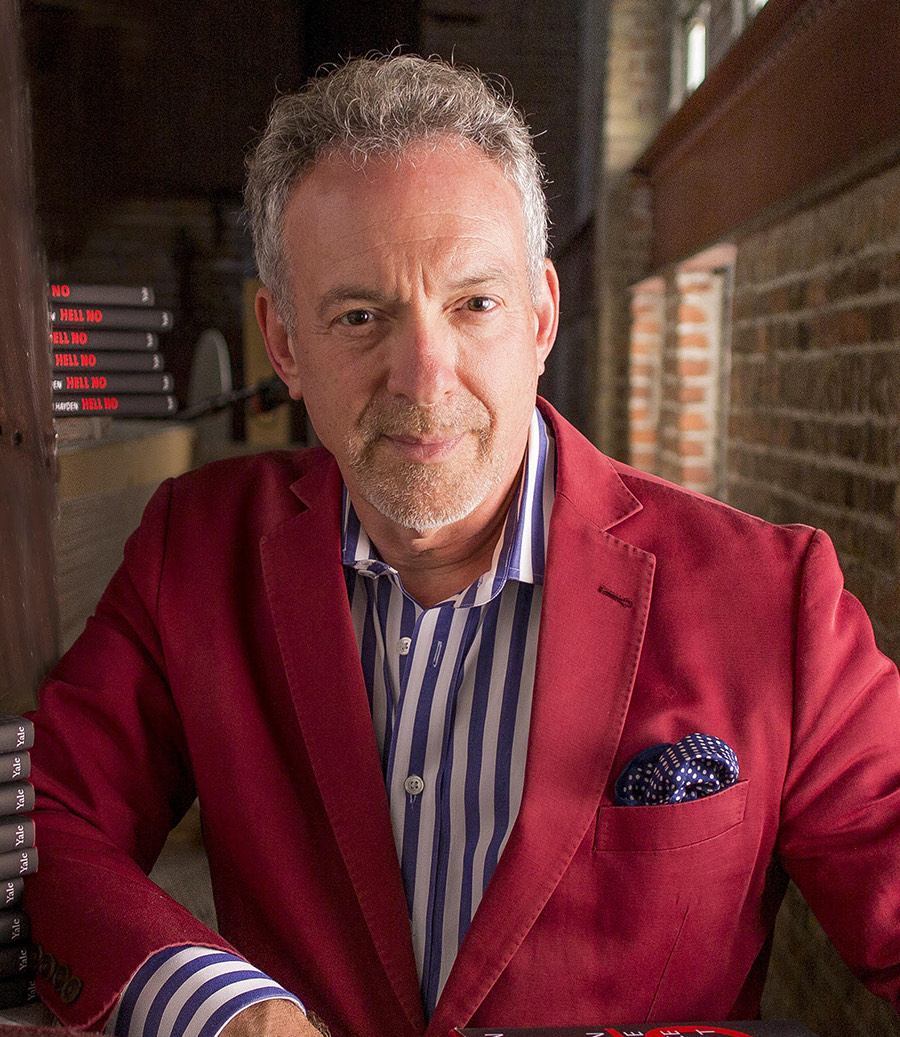
Steve Wasserman and Viet Thanh Nguyen, “Friend of My Mind: Essays on Finding a Home in Literature”
Steve Wasserman and Viet Thanh Nguyen dissected the intricacies of the publishing industry, noting the complex ways in which writing mediates identity and politics.
Panelists took to the Seeley G. Mudd stage at 10:30 a.m., and New York Times bestselling author and Random House’s recently retired managing editor Benjamin Dreyer kicked off the conversation as the moderator. Wasserman, co-founder of the LA Times Festival of Books and author of “Tell Me Something, Tell Me Anything, Even If It’s A Lie: A Memoir in Essays,” and Nguyen, a Pulitzer Prize winner and author of “To Save and to Destroy,” discussed the role of storytelling in shaping one’s identity.
“I really imagined myself as a reader more than a writer,” Wasserman said. “Reading was a form of travel, was a way to actually slip the noose of one’s own presumed identity and to travel to other planets and to see or imagine how other people live.”
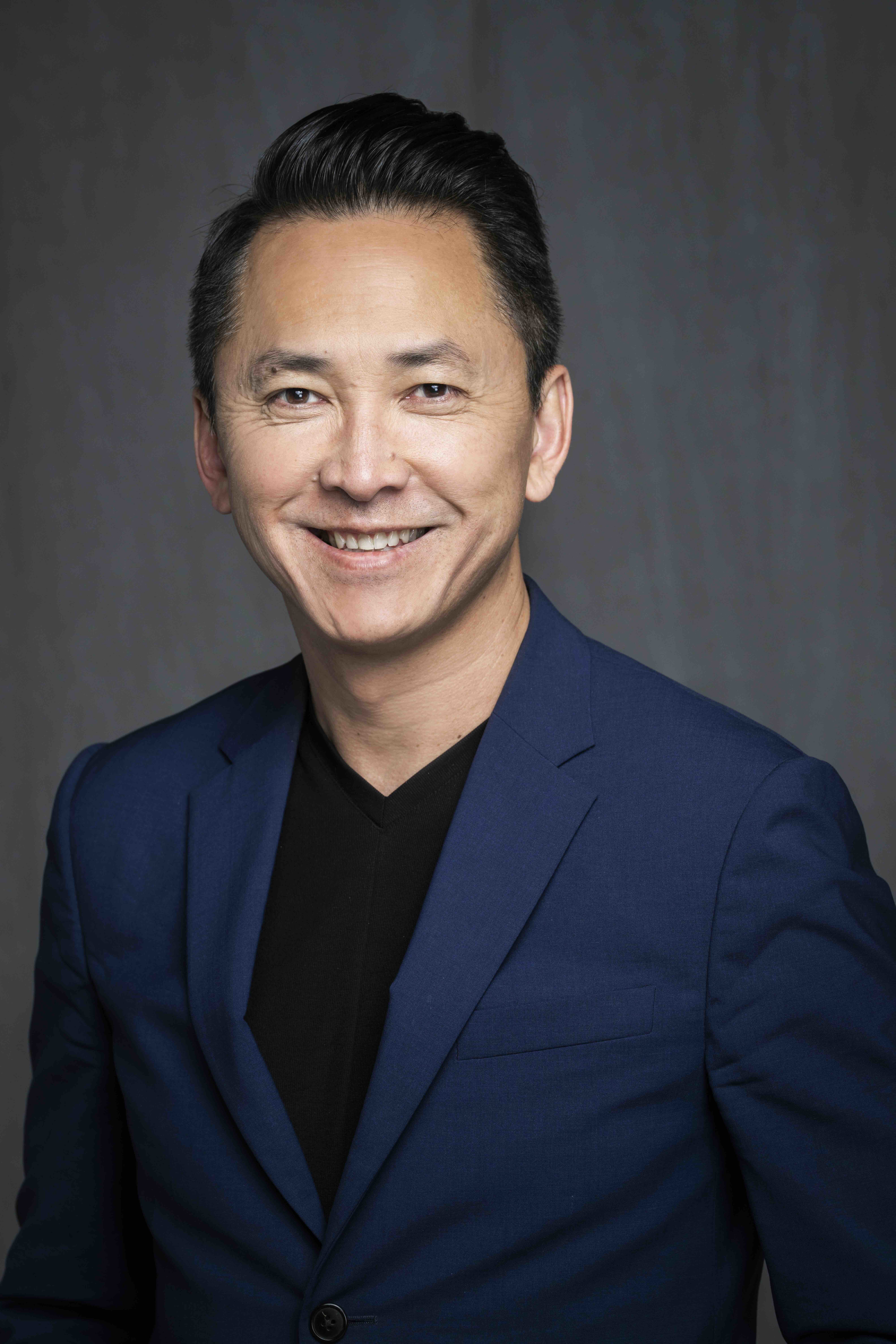
A main focus of the discussion was how writing can inform one’s relationship with the places they call home. Nguyen said that as a child, he considered the library as his “unsentimental second home,” a place that lacked intimate personal connection but provided one with refuge. As a writer, he said spaces such as this can cultivate a sense of belonging and groundedness in the writing process.
Wasserman also discussed the importance of literary homes in reflecting the current political landscape. He said he noticed the festival’s lack of panels focusing on several wars taking place around the world, adding that the disruption of stability in one’s life can interfere with the sense of security found in creative production.
“It seems to me, this is a certain culture of timidity that has set in,” Wasserman said. “Which has to be confronted and that also is a part of whether or not any actual home can be found either in writing or in the physical place, which should provide the kind of safety that would permit our imaginations to run wild.”
The panelists rounded out their conversation with an appeal to the universality of literature. Nguyen referenced Toni Morrison, whose work he said exemplifies how writers can write to and for themselves while still connecting with audiences.
“It’s (literature) one way to recognize that our otherness exists within not just ourselves, but within other people,” Nguyen said.
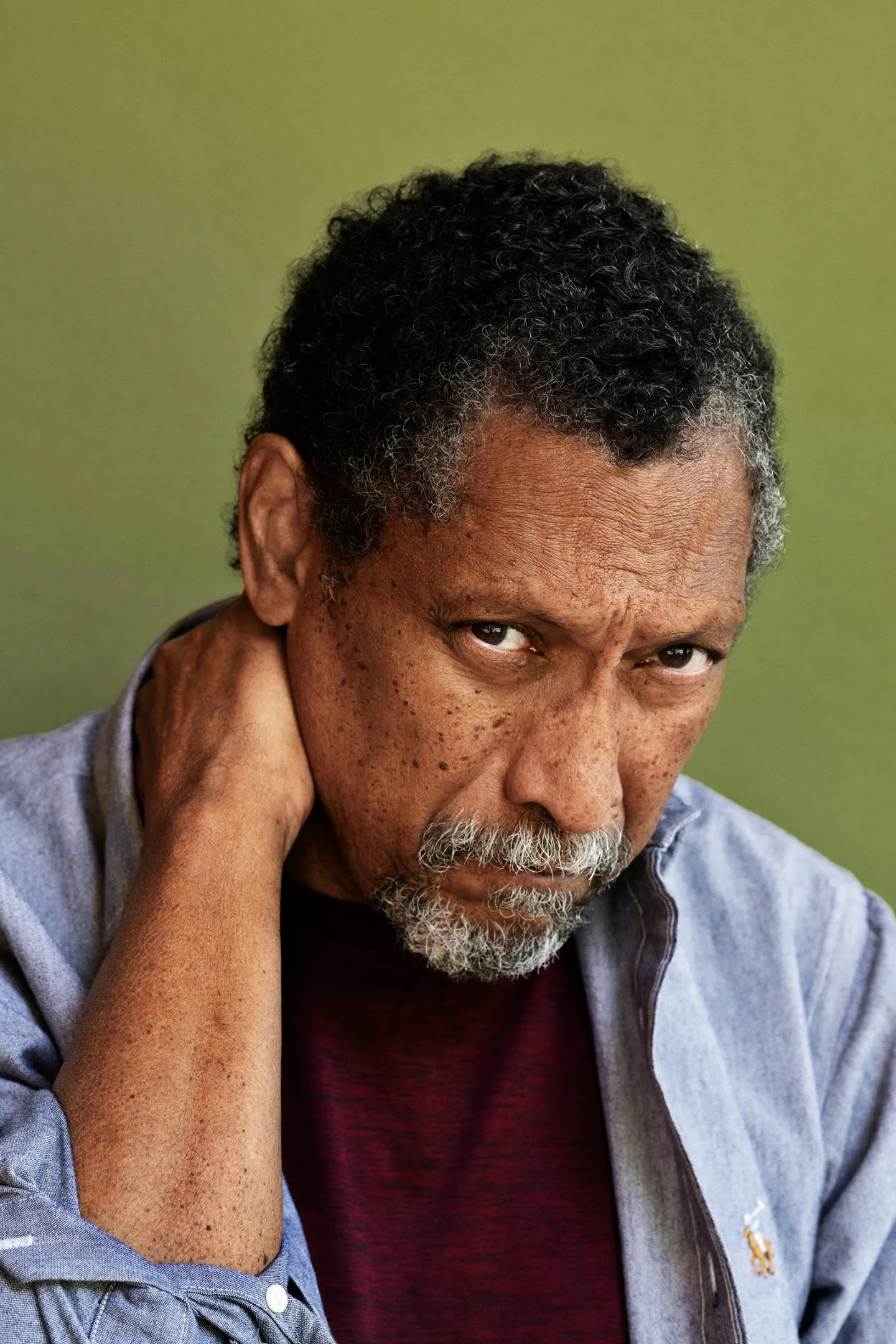
Percival Everett, author of “James,” in conversation with Héctor Tobar
Percival Everett’s “James” examines race and unwritten history.
“James” is a reimagining of “The Adventures of Huckleberry Finn” by Mark Twain told from the perspective of Jim, an enslaved man. At 12:30 p.m., Everett, the 2024 National Book Award winner, took to the stage on front of a packed audience at Bovard Auditorium. Fielding questions from Pulitzer Prize-winning journalist Héctor Tobar, Everett talked about his research, writing process and inspiration.
Everett said part of his preparation for writing “James” included reading the original story by Twain 15 times. When asked what he learned from each of his readings, Everett joked that 10 times was more than enough. The methodical process of rereading was to develop a keen sense of familiarity with the world of Huckleberry Finn, he said. Rather than pay closer attention to the actual plot of the book, Everett said he wanted to better understand the setting.
“I didn’t want to owe any allegiance to the text – only to the world,” Everett said. “I wanted to know that thoroughly.”
One central aspect of “James” is the transformation of Twain’s Jim to Everett’s James, which manifests primarily in a transition between dialects. Everett said he conceptualized this contrast while researching the WPA Federal Writers’ Project established by President Franklin D. Roosevelt in 1935, which showed a discrepancy between the way Black people spoke versus how their recordings were transcribed. The transcriptions had translated conventional English into stereotypical and racist vernacular of enslaved people, he said, adding that this is the reason James speaks in a southwestern Missouri dialect when addressing the white characters in the novel.
Everett also mentioned his late father as a source of inspiration for his writing humor.
“I strive to be like him. … He produced one of my favorite puns ever – my mother would put newspaper down on the kitchen floor during rainstorms so that by the time you got to the floor she cared about, your shoes were somewhat dry. And my father stood there on the newspaper, and he looked at me, and he said, ‘These are the times that dry men’s soles,’” Everett said. “I thought, ‘Wow, that’s fantastic.’ I’ll spend my entire life looking for one as good.”
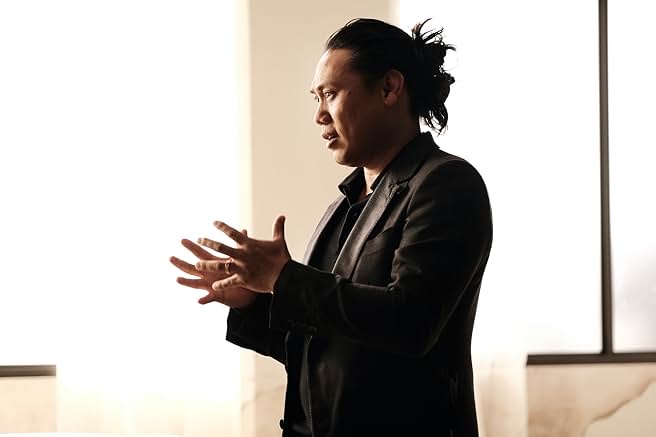
Jon M. Chu, author of “Viewfinder: A Memoir of Seeing and Being Seen,” in conversation with Ashley Lee
Fresh off the success of the Oscar-winning “Wicked,” director Jon M. Chu spoke about navigating a cultural identity crisis and forging his own path through Hollywood in his memoir.
“Viewfinder: A Memoir of Seeing and Being Seen” is a story of developing artistic agency, merging culture with creative interests and overcoming social obstacles. At 1:30 p.m., the director who is also known for his work on “Crazy Rich Asians” and “In the Heights,” talked with the LA Times’ Ashley Lee about growing up in Silicon Valley and searching for Asian American representation in film. Finding few pieces of media that represented him and his family, Chu said he remembers his excitement when he received his first camera.
“It gave me this tool to express myself in ways that I couldn’t say to my parents,” Chu said. “When I made a video of us growing up, and my first time ever editing something … they started to cry when they watched it.”
Chu said being able to see his family on the television screen via his first film made him realize he was “hooked” on filmmaking. Chu attributed his early successes as a student filmmaker to the generosity of the customers at his parents’ restaurant, who donated technological resources to him.
Chu said he spent his time as a film student at USC and after graduation developing his craft and using whatever resources he could get to produce his projects. It wasn’t until he was directing “Now You See Me 2” that he felt he had cemented his career as a filmmaker, Chu said.
“I remember hitting a point where I realized I hit my 10,000 hours,” Chu said. “All that time, I was like, ‘I just have to prove myself so I can still be here to make my next movie,’ and I’m working with Mark Ruffalo, Michael Caine, Morgan Freeman, Jesse Eisenberg and Woody Harrelson, and I realized in the middle of that shoot, ‘Oh, I can hang. I think I know what I’m doing.”
Still, Chu said he struggled with navigating his career as an Asian American filmmaker wanting to make a name for himself in Hollywood without being constrained by his racial identity. When he discovered the novel “Crazy Rich Asians” by Kevin Kwan, Chu said the story appealed to him on a personal level and enabled him to overcome his cultural identity crisis.
The conversation concluded with an open Q&A where Chu answered questions about directing “Wicked,” advice for aspiring filmmakers and upcoming projects.
“You have to trust the process – that we will all figure the things out as we come along,” Chu said. “I think your success is directly related to how many uncomfortable conversations you’re willing to have – and I don’t love being uncomfortable – but I had to get really used to that.”


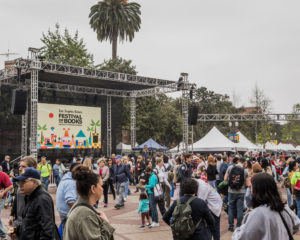
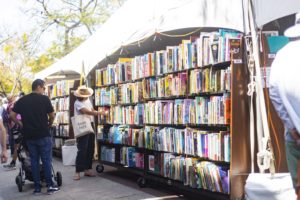
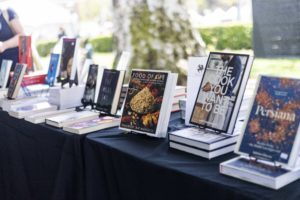
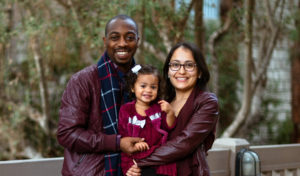
Comments are closed.